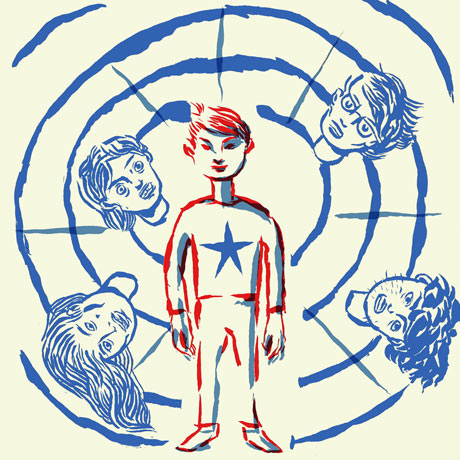
It's a largely unquestioned plank of what passes for self-help wisdom that you should cut "toxic people" out of your life. Get rid of losers and Energy Vampires; surround yourself, instead, with upbeat high-achievers who'll motivate you to match their success. Know someone crippled by low self-esteem, convinced nobody likes her? Stop being her friend. Got an acquaintance who won't shut up about his debilitating fear of doors? Show him the door. There's a grain of real wisdom here, of course, but an alarming study at Yale University suggests that those superachievers may not be good for you, either.
Psychologists have long known that willpower's a depletable resource: resist the urge to scarf down a cheeseburger at lunchtime, and you'll have less left to make yourself go running after work. Motivational gurus love to claim that self-discipline is "like a muscle"; they mean it gets stronger with training, but rarely mention that also, like a muscle, it gets exhausted. Yet the Yale researchers found persuasive evidence of what they called "vicarious depletion": when people vividly mentally simulated tasks others were carrying out, they, too, had less willpower remaining. Getting caught up in your loser friends' dramas may bring you down. But getting caught up in your non-loser friends' achievements – their exhausting triumphs at work, their round-the-world adventures – may also wear you out, leaving you less well-equipped for your own.
What's going on here, it seems, is one of the downsides of empathy. We tend to think of empathy as an unmitigated good: a recent survey claiming that young Americans are 40% less empathetic than in 1979, for example, was greeted with shock – if also with raised eyebrows at how, precisely, that could be measured. But our brilliance at recreating the emotional lives of others means we also pay some of their emotional costs. Similar things can happen with memory, as you'll know if you have ever become confused between whether an event happened to you, or to a friend, or to a movie character. (Don't fret: studies suggest you're normal.) "Findings like this reinforce the point that our memories are not designed to provide a truthful readout of the events of our lives," argues the psychologist Art Markman. "Memory is designed to help us act in the future. Seeing an action performed gives you some confidence that you understand how to perform the action yourself."
None of which means that empathy isn't largely a good thing – though the Yale paper does speculate that vicarious willpower depletion might lead to "police officers responding to an emotionally charged encounter with deadly force". More mundanely, as the writer of PopEconomics.com puts it, it just means that "next time you talk to a friend about his diet or rough day at work, pay attention to the hunger or exhaustion that inspires in you". You can also harness the limits of empathy for your own benefit, in what the author Cal Newport calls the Failed Simulation Effect. The way to really impress other people, he argues – he's addressing students applying to university – isn't to rack up achievements that are hard to do so much as hard to explain. If someone else "cannot mentally simulate the steps taken… to reach an accomplishment", he says, they'll be far more authentically awestruck. Magicians exploit this distinction all the time. Why shouldn't you?
oliver.burkeman@theguardian.com

